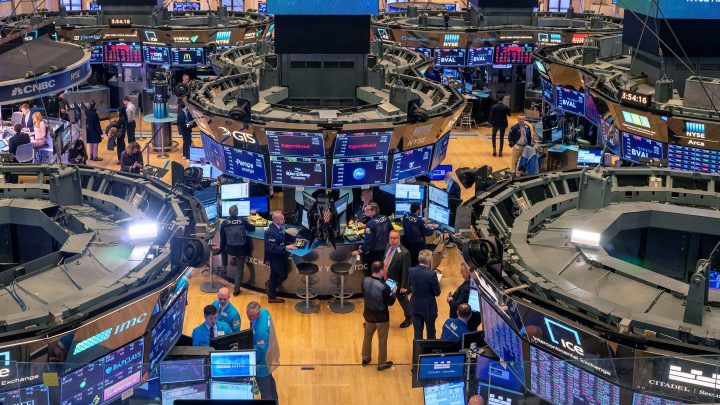
Junk bonds offer insight into the economy

Companies issue bonds all the time to raise money, just like the U.S. government issues treasuries. And some of those bonds are, shall we say, better than others. You’ve got your investment grade bonds, which are not considered that risky, and then you’ve got what are known as “junk” bonds, which are. Those junk bonds are in some ways canaries in the economic coal mine. And they’re still singing … for now.
Whoever named junk bonds “junk bonds” really did not do them any favors.
“It doesn’t mean that these companies are bad companies,” said Elizabeth Han, head of U.S. default research at Fitch Ratings. “Junk bonds refer to a credit rating that a company is given.”
It’s not necessarily a particularly bad credit rating, it just has to be less than really good.
“Companies that are in the junk bond space tend to have a little bit more leverage,” Han said.
So a little more debt or a lot more debt, which could mean the company has fallen on hard times. This happened to companies like Ford during the pandemic — it returned to investment grade just last year.
But also some industries just have higher debt; think real estate, where you take out loans to build a skyscraper, or mining, where you have a lot of equipment to finance.
“Some companies just need to operate with slightly more leveraged credit profiles or slightly lower margins,” Han said.
So Han doesn’t actually like to use the word junk, she prefers “high yield.”
That is the official name, because bonds from these companies pay out more — sometimes a lot more — than treasury bonds or investment grade bonds. They pay out more because they do carry a higher risk of default. Like if something goes wrong, they might never pay back the bond.
“They’re really on a knife’s edge,” said Bob Elliott, CEO of Unlimited Funds, an investment firm. “If the economy continues to be strong, those companies will continue to pay the elevated yields, but any hiccups in the economy, and these are the types of companies that will first feel the pain.”
They are starting to feel some pain.
“We’ve seen a decline in the amount of income those businesses are earning, relative to the amount of interest payments that they need to pay,” he said.
That is largely because the Federal Reserve raised interest rates so much. Companies have been doing all kinds of gymnastics to procrastinate issuing new bonds at these higher rates. But some companies have had to, and it’s expensive.
Elizabeth Han at Fitch said she saw a 3% default rate, which is about average.
“But we are forecasting that rate to go up, we are forecasted between five and five and a half for 2024,” she said.
But that increase is driven by a relatively few companies with a particularly large amount of debt, Han said.
“The companies in the traditional high yield bond market are actually better credit quality than they were, say, 10 years ago,” said Steve Laipply, co-head of bond ETFS for BlackRock.
Some of that is because more troubled companies now avoid the bond market and get funding elsewhere. And investors do not seem to be too worried about the junk bond market. Usually the more worried investors are, the more money companies have to promise them to get them to invest. That extra return is at multi-decade lows.
So that’s telling you the market believes that the economy is fairly strong, Laipply said.
Will all that change in 2024? Watch the junk bond market.
There’s a lot happening in the world. Through it all, Marketplace is here for you.
You rely on Marketplace to break down the world’s events and tell you how it affects you in a fact-based, approachable way. We rely on your financial support to keep making that possible.
Your donation today powers the independent journalism that you rely on. For just $5/month, you can help sustain Marketplace so we can keep reporting on the things that matter to you.











